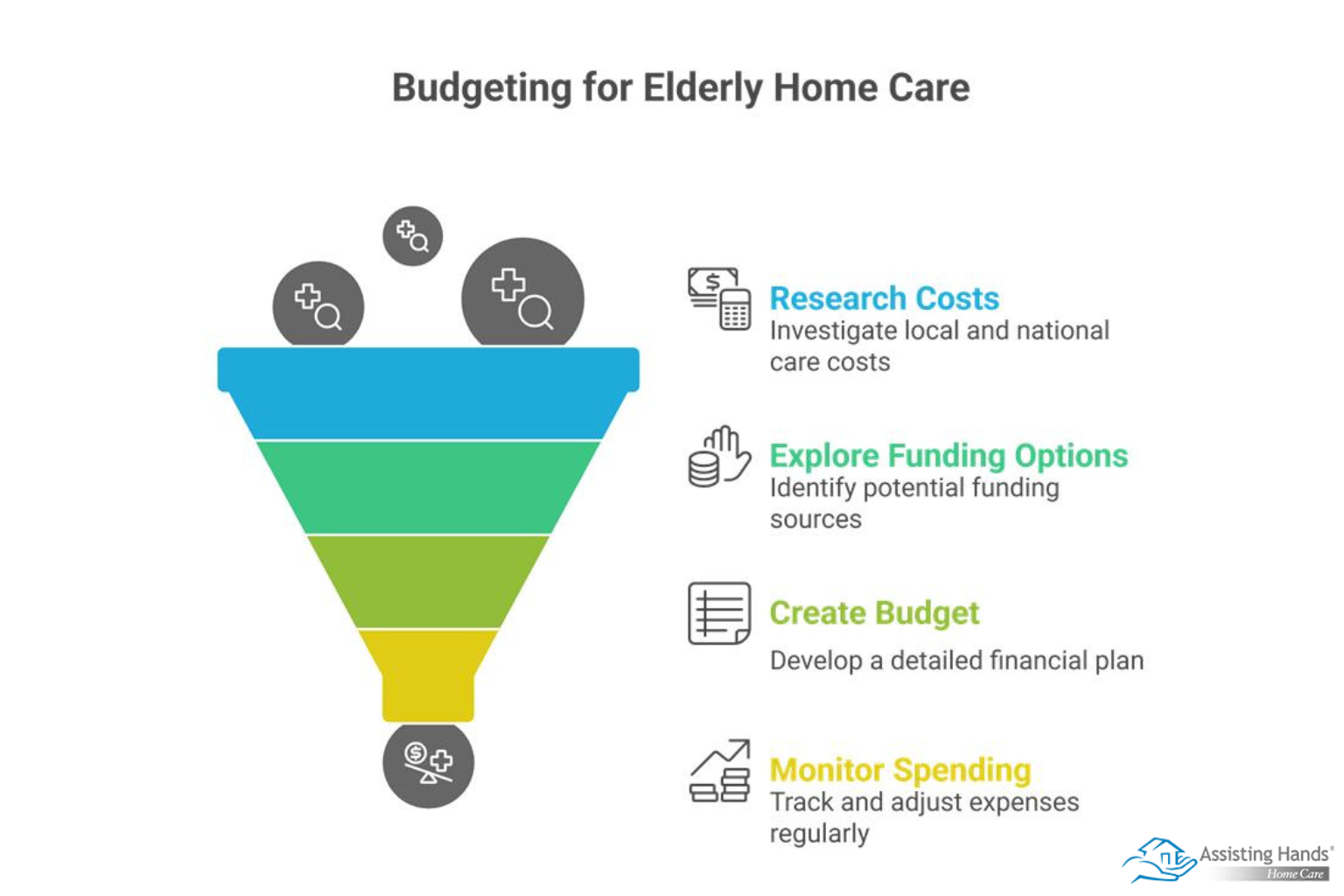
Table of Content
Caring for a loved one in the golden years is a rewarding yet financially sensitive responsibility. Senior home care services can offer the tailored assistance your loved one may require, but navigating the costs can seem overwhelming. With proper planning and knowledge, you can create a manageable budget while ensuring high-quality care.
Understand the Different Types of Senior Home Care
Senior home care services vary widely based on the level of care needed. Identifying the right type of care is crucial to preventing unnecessary costs:
- Companion care – This typically includes nonmedical assistance like meal preparation, light housekeeping, and social interaction. It’s often the most affordable type of care.
- Personal care – This includes help with daily activities such as bathing, dressing, and toileting. It’s slightly higher in cost than companion care due to the personal involvement required.
- Skilled nursing care – This provides medical care administered by licensed professionals, such as wound care, medication management, or physical therapy. It’s generally the most expensive option but necessary for those with complex medical needs.
Understanding these distinctions will help you estimate costs and prioritize your budget.
One of the most challenging tasks of helping an elderly relative age in place safely and comfortably is researching agencies that provide homecare. Turn to Assisting Hands Home Care for reliable, high-quality in-home care for aging adults. We offer 24-hour care for seniors who require extensive assistance, and we also offer respite care for family caregivers who need a break from their caregiving duties.

Research the Average Costs in Your Area
The cost of senior home care varies depending on location. Researching local rates can provide insights into what you can expect to spend. Consider these steps:
- National averages vs. local rates – While national averages can provide a starting point, focus on costs in your local area. Websites like Genworth’s Cost of Care Survey can help you compare prices by region.
- Hourly vs. monthly costs – Many home care providers charge hourly rates. If your loved one only needs a few hours of care per day, opt for an hourly arrangement rather than a monthly package.
- Additional services – Be aware of add-on services or hidden fees, such as transportation or medication delivery, which may not be included in the
If you have a senior loved one who needs help maintaining a high quality of life while aging in place, reach out to Assisting Hands Home Care, a leading provider of in-home care Reston families can rely on. All of our caregivers are bonded, licensed, and insured, there are no hidden fees, and we never ask our clients to sign long-term contracts.
Explore Payment Options and Funding Sources
Paying for senior home care doesn’t have to only rely on personal savings. Explore multiple funding sources to reduce financial strain:
- Long-term care insurance – If your loved one has this insurance, review the benefits and coverage for home care services.
- Medicare and Medicaid – While Medicare has limited coverage for home care, Medicaid may cover a broader range of services for those who qualify.
- Veterans’ benefits – Veterans and their surviving spouses may be eligible for financial assistance through programs like Aid & Attendance.
- State programs – Many states offer additional programs to assist with the cost of home care services. Research your state’s specific offerings.
- Private payment – If family members are contributing, establish a clear agreement to avoid misunderstandings and ensure transparency.
Consider Creating a Detailed Budget Breakdown
Once you understand the costs and funding options, create a detailed budget tailored to your loved one’s needs. Here’s how:
- Start with essential expenses – Identify the most critical services your loved one requires, such as daily care or medical support, and allocate funds accordingly.
- Factor in unexpected costs – Include a buffer for unforeseen expenses, such as equipment or additional care during emergencies.
- Compare providers – Don’t settle for the first provider you find. Request detailed quotes from multiple care agencies to understand what you’re paying for and identify the best value.
- Monitor monthly spending – Regularly review care costs to ensure you’re staying within your budget and adjust as your loved one’s needs evolve.
Leverage Community Resources and Free Support
Don’t overlook the support available through local or national organizations. Many services exist to assist families in reducing the financial burden of senior care:
- Nonprofit organizations – Groups like the National Council on Aging often have programs to help seniors and their families save money.
- Faith-based initiatives – Churches or religious groups in some communities may offer volunteer-based home assistance or financial help.
- Family and friends – Coordinate care with family members or enlist friends to cover nonmedical tasks, reducing paid hours for professional caregivers.
By utilizing these resources, you can offset costs without sacrificing the quality of care you provide.
Whether your elderly loved one needs part-time assistance with basic household chores or you need a break from your caregiving duties, the Reston respite care experts at Assisting Hands Home Care are here to help. All of our home care services are backed with a 100% satisfaction guarantee, there are no hidden fees in our contracts, and we never ask our clients to sign long-term contracts. To learn about our high-quality in-home care services, give us a call today.







